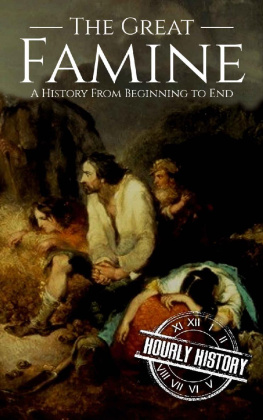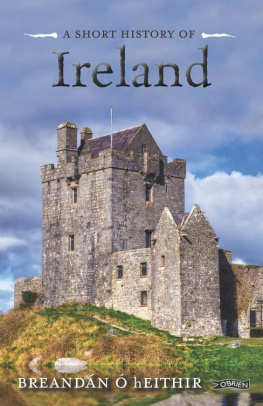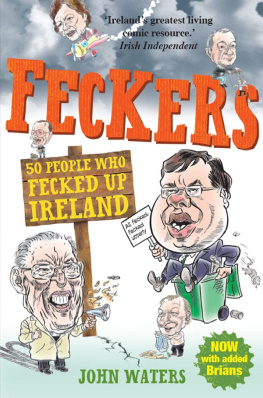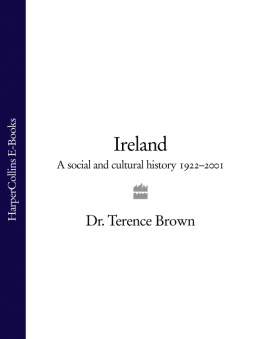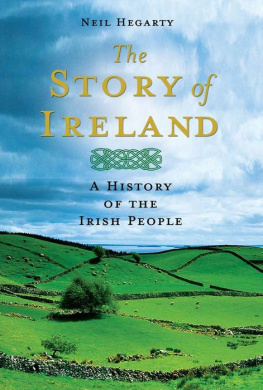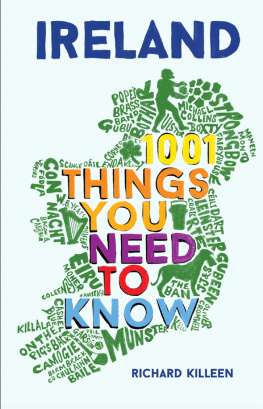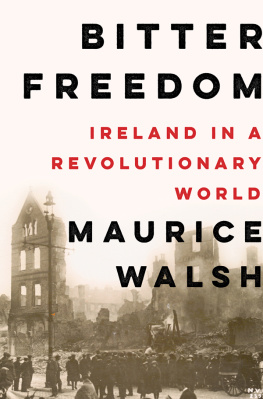John Waters was born in Castlerea, Co Roscommon. Against the trend of modern journalism, he worked in a variety of roles before entering the media as a late vocation. After somewhat prematurely leaving the education system, he held a range of jobs after leaving school, including railway clerk, showband roadie, pirate radio manager, petrol pump attendant and mailcar driver. He began part-time work as a journalist in 1981, with Hot Press, Irelands leading rocknroll periodical, becoming a full-time journalist with the paper in 1984, when he moved to Dublin. As a journalist, magazine editor and columnist, he has specialized in raising unpopular issues of public importance, including the repression of famine memories and the denial of rights to fathers. His previous books include Jiving at the Crossroads (Blackstaff, 1991); Race of Angels (4th Estate/Blackstaff,1994): Every Day Like Sunday? (Poolbeg, 1995); An Intelligent Persons Guide to Modern Ireland (Duckworth, 1997); The Politburo Has Decided That You Are Unwell, (Liffey, 2004); Lapsed Agnostic (Continuum, 2007) and Beyond Consolation (Continuum, 2010).
He has written a number of plays for radio and the stage, including Long Black Coat (1994), Holy Secrets (BBC, 1996), Easter Dues (1998), and Adverse Possession (BBC, 1998). He has been a columnist with the Irish Times for almost twenty years and currently also writes a weekly columns for The Irish Mail on Sunday. He is also a born-again songwriter and the father of a teenage daughter, Risn.

Constable & Robinson Ltd
5556 Russell Square
London WC1B 4HP
www.constablerobinson.com
First published in the UK by Constable,
an imprint of Constable & Robinson Ltd, 2011
Copyright John Waters, 2010
Illustrations copyright Aongus Collins, 2010
The right of John Waters to be identified as the author of this
work has been asserted by him in accordance with the
Copyright, Designs and Patents Act 1988
All rights reserved. This book is sold subject to the condition that it shall not, by way of trade or otherwise, be lent, re-sold, hired out or otherwise circulated in any form of binding or cover other than that in which it is published and without a similar condition including this condition being imposed on the subsequent purchaser.
A copy of the British Library Cataloguing in Publication data is available from the British Library
ISBN: 978-1-84901-687-2
eISBN: 978-1-84901-924-8
Printed and bound in the EU
1 3 5 7 9 10 8 6 4 2
Introduction
E veryone in Ireland, at least everyone who knows anything, knows what a fecker is. But few, put under pressure to define the term, could do more than produce a synonym or two: gobshite, chancer, bollox.
The word feck is obviously related to another much-employed f-word. In daily usage it often acts as an alternative, supplanting the coarser, harder impact of the other with a gentler, more ironic inflexion. So it has all the connotations attaching to its more ubiquitous brother-word, and yet seems somehow not just to be less splenetic, but also less angry, less condemnatory somehow. There is an irony about feck, while also, strangely, a deeper quality of contempt. A fucker is someone for whom the speaker retains a degree of respect, whereas fecker has a hint of dismissiveness about it.
But the word fecker retains about its person some element of regard. There is a sense that the accused is, if not exactly admired, at least held in a somewhat exasperated tolerance. A fecker is someone who may exhaust the patience but not entirely the affections. When the epithet is directed at some absent miscreant, a smile is always in the offing. When levelled face-to-face, it is liable to provoke a wink or a grin.
The invitation to Feck off! was used with abandon by Father Jack in the comedy series Father Ted. And, although this has given rise to the idea that feck is a uniquely Irish word, the etymology of the word traces it to various sources in Middle English, Scots English and Hiberno-English.
Feck is a verb with several distinct meanings. One meaning relates to an improper or precipitous departure, as in: He fecked off and left her to mind the babby herself.
Another, not unrelated, meaning suggests the abandonment of some responsibility, commitment or endeavour, to throw something there; because, it is to be inferred, it was not going well. For example: He fecked the whole thing there and fecked off. More prosaically, feck can also mean simply to throw. He fecked the bicycle in the lake and fecked off.
Feck also means to steal. He fecked a load of apples out of me garden. Or, as used by that fecker James Joyce in A Portrait of the Artist as a Young Man, They had fecked cash out of the rectors room.
In everyday usage, however, the word feck is often used as a general-purpose swear-word. To feck things up, then, means simply to make a mess, or a hames of everything. This use of the word seems also, though it may be coincidence, not entirely unrelated to the concept of fecklessness.
Whatever way you look at it, Ireland has certainly been fecked up. Popular opinion might at the moment be disposed to argue that it has been fecked in a quite literal sense that certain individuals and interests have stolen the fruits of Irelands hard-won struggle for autonomy and self-sufficiency. You could, without raising a sweat, come up with fifty names of people who might be deemed blameworthy in this literal sense.
But this would be monotonous and somewhat misleading. While it is true that, in the past decade or so, a considerable amount of what called itself entrepreneurial activity amounted to a form of theft, it is also true that the roots of this go much deeper. To simply trawl through the newspapers, therefore, and pluck out the most frequently used names of venal bankers, developers and their political cronies would be to suggest that all the present misfortune is of recent derivation.
The failure of Ireland was not unforeseeable, nor was it an accident. Contrary to the analysis being peddled on a daily basis by ideologues with axes to grind, it did not flow from the corruption of a few bankers and politicians. Such an analysis would suggest that all sins are financial ones, as if nothing that has happened of late has any roots or connection to patterns established in the past when, really, nothing that has happened lately was in any serious degree unpredictable on the basis of even the most cursory observation of the weave of Irish life through the last century.
But in itself the recent economic catastrophe should have been an opportunity to ask a number of questions. How much longer could we congratulate ourselves on the opening up of Irish society, without acknowledging that opening up also destroyed the taboos which preserve many of the understandings of human nature that define civilization? For how long could we continue to quantify only those aspects of our alleged modernization which had been agreed as unambiguously virtuous, while ignoring the creeping consequences? And for how long could we continue to disregard the ambiguities of virtually every aspect of what we term progress, even in the face of escalating breakdown and complication?
Our failure to ask these questions stemmed from Irelands most fundamental and ominous flaw: a failure of self-understanding.
Change is one of the most over and misused words in the lexicon of modern Ireland. All the time we are reminded of how much Ireland has changed since that or then: since de Valeras comely maidens dancing at the crossroads speech, since we crossed the border into what is deemed modernity in 1960, since the First Programme of Economic Expansion, since the Robinson presidency, and so on. Invariably, the implication is that change can only be for the better. The problem with the kind of progress so loudly and pervasively celebrated in this society for several decades is not that it has occurred, but that it has occurred without a great deal of thought being applied to the complexities that change inevitably brings.
Next page


